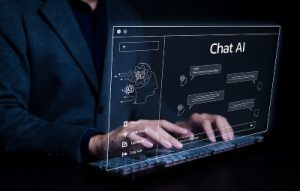
Generative AI is a type of Artificial Intelligence (AI) that produces content. That could be a story, an image, or an audio file, and is a shift from traditional AI usage, which is focused on completing a task based on predefined rules. Generative AI utilizes existing data to produce this new content based on a prompt such as "write a blog post on government use of generative AI." Disclaimer: generative AI was not used in the creation of this blog post.
Balancing Act of Generative AI
Like traditional AI, generative AI holds great promise for automating highly manual tasks in many areas of government. A recent report found that three-fourths of agency leaders said their agencies have already begun establishing teams to assess the impact of generative AI and are planning to implement initial applications in the coming months. Continue reading



 Today's organizations know that stopping 100% of cyber-attacks is not a realistic goal. Rather, the focus has shifted to
Today's organizations know that stopping 100% of cyber-attacks is not a realistic goal. Rather, the focus has shifted to 

